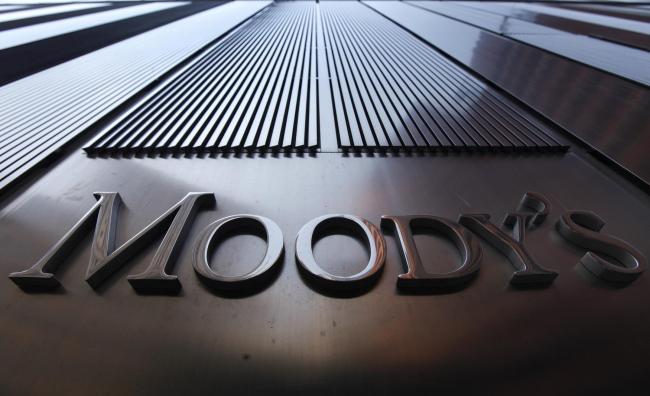‘Korea’s GDP vulnerable to stock crash’
Moody’s says Korea faces export slump, China impacts
By 김연세Published : Oct. 28, 2015 - 17:54
A sharp drop in the composite stock price index could deal a harder blow to the Korean economy than other major countries, a report from a U.K.-based think tank said Wednesday.
Oxford Economics compared 34 countries in its analysis of the impact of equity price shocks on the gross domestic product. The U.S. topped the list in terms of its vulnerability, and Korea was ranked second, followed by Singapore, Hong Kong and the U.K.
The research report noted that the combined market capitalization of Korean stocks is equivalent to 90 percent of its GDP.
Should the global stock prices fall by 15 percent at the current stage, Korea’s GDP growth in two years could shrink by 1.3 percent, from the earlier projection for the 2017 growth, according to the report.
The impact of the shocks on Korea’s GDP is estimated to be higher than the global average. Given a 15 percent drop in stock prices, the impact on the world’s GDP is forecast to be between 0.4 percent and 0.7 percent.
An economist at Oxford Economics clarified that emerging economies will generally undergo greater impacts than developed economies though the extent will differ according to the financial asset scale and structure of nations.
While China (12th) was also ranked above the world’s average in the risks, Japan was placed 30th among the 34 economies. Among countries with smaller risks were Australia (34th), Brazil (33rd), Germany (29th), France (28th) and India (26th).
Many local analysts cite the Korean equity market’s susceptibility to external shocks as the main handicap despite the strong fundamentals of blue chips including Samsung Electronics and Hyundai Motor.
“Korea’s financial market is larger than ordinary emerging countries, and the ratio of stocks among the financial investments is also high. As a result, a bearish stock market could have a negative effect on private consumption,” said a report from LG Economic Research Institute.
“Though Korea has a relatively stable financial market among emerging nations, it is hard to say that negative impacts from the price plunge have become small compared to past years,” said Rim Hee-jung from Hyundai Economic Research Institute.
Meanwhile, Moody’s Investors Service said in its credit analysis on Korea on the same day that it “faces near term external headwinds in the form of lackluster global demand and slower growth in China, an important trading partner.”

The U.S. rating firm also said that “the financial risks posed by rising household debt remains a salient concern.”
But it added that the government is proceeding with measures to reduce these risk.
Despite the slump in exports, China risks and huge consumer debt, it added that the Korean economy has “demonstrated its ability to bounce back from external shocks.”
Moody’s said it affirmed Korea’s Aa3 government bond rating and changed the outlook to positive from stable.
By Kim Yon-se (kys@heraldcorp.com)







![[Graphic News] More Koreans say they plan long-distance trips this year](http://res.heraldm.com/phpwas/restmb_idxmake.php?idx=644&simg=/content/image/2024/04/17/20240417050828_0.gif&u=)
![[KH Explains] Hyundai's full hybrid edge to pay off amid slow transition to pure EVs](http://res.heraldm.com/phpwas/restmb_idxmake.php?idx=644&simg=/content/image/2024/04/18/20240418050645_0.jpg&u=20240419100350)





![[From the Scene] Monks, Buddhists hail return of remains of Buddhas](http://res.heraldm.com/phpwas/restmb_idxmake.php?idx=652&simg=/content/image/2024/04/19/20240419050617_0.jpg&u=20240419175937)

![[KH Explains] Hyundai's full hybrid edge to pay off amid slow transition to pure EVs](http://res.heraldm.com/phpwas/restmb_idxmake.php?idx=652&simg=/content/image/2024/04/18/20240418050645_0.jpg&u=20240419100350)

![[Today’s K-pop] Illit drops debut single remix](http://res.heraldm.com/phpwas/restmb_idxmake.php?idx=642&simg=/content/image/2024/04/19/20240419050612_0.jpg&u=)